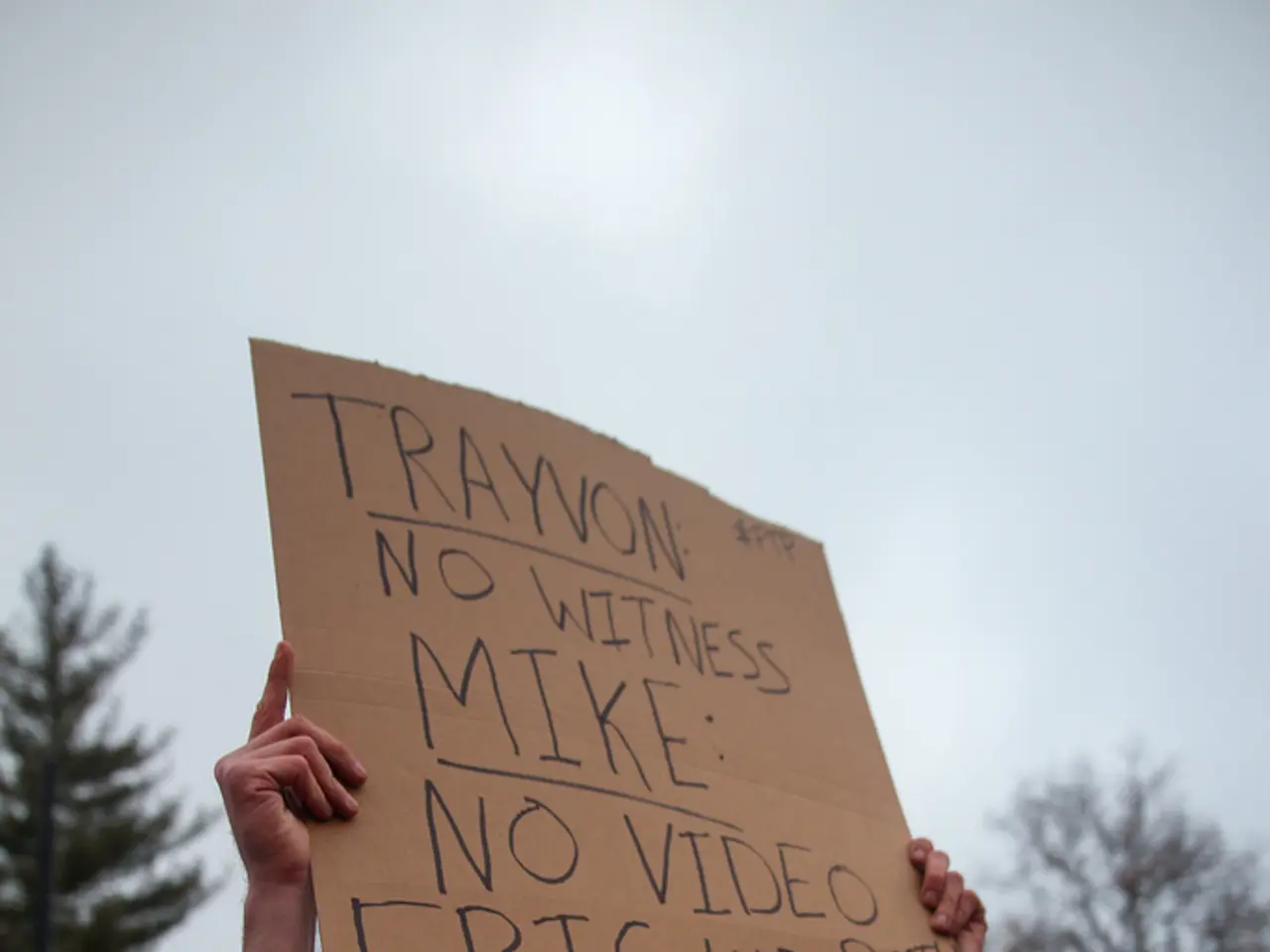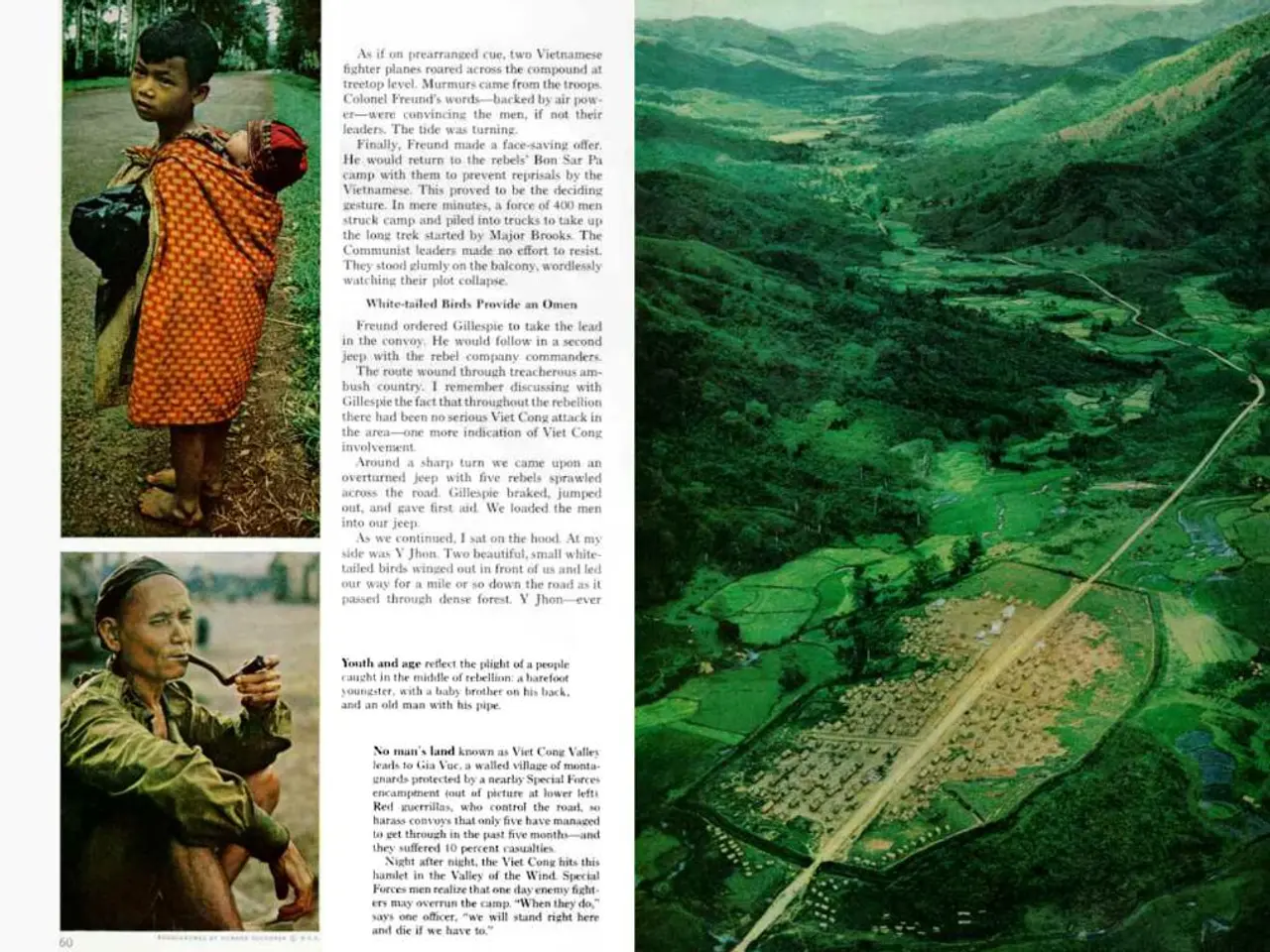Trump Demands Firing of Reporters Over Iran Reports: A Disturbing Trend in Media-Politics Relations
Trump advocates for dismissal of journalists he perceives as fabricating news, specifically those reporting on Iran.
In an alarming turn of events, the former U.S. President, Donald Trump, has called for the immediate termination of reporters from CNN and The New York Times, labeling them as "bad people with evil intentions." This outrageous demands stem from the media outlets' reports on classified intelligence regarding the strike on Iran, challenging Trump's portrayal of the extent of damage to Iran's nuclear facilities.
Trump's latest diatribe against these media outlets follows a series of accusations of false reporting, using inflammatory language. This sort of aggressive behavior towards the press is not unheard of in recent days, with Trump-era figures and allies taking an aggressive stance against media that criticize their policies, including on immigration and national security.
Case in point -- back in 2025, a senior ABC reporter, Terry Moran, was fired following critical tweets about a White House official, highlighting the impact of political pressure on media organizations and their journalists.
The demand for the firing of journalists over national security reporting is highly unusual, especially in a democratically governed country. In fact, in Germany, such behavior is repudiated in political life due to the constitutionally-protected press freedom.
In broader global context, politicians with nationalist or populist agendas, such as Trump and Hungarian Prime Minister Viktor Orbán, have been known to exploit media for political gain, undermining journalists and media outlets that report unfavorable news, especially on security matters. This tactic is often justified under the pretext of protecting national security or preventing foreign influence.
Republican Rep. Kari Lake in 2025 campaigned for replacements of established journalists at Voice of America with individuals aligned with her political views, citing alleged security risks associated with foreign journalists employed there. Such claims about national security breaches or foreign infiltration have been used to justify the purging of journalists and re-shaping media narratives.
In summary, political figures have a disturbing pattern of calling for the firing or punishment of journalists reporting critically on national security issues, often under the guise of safeguarding national security or averting foreign influence. This ultimately serves to intimidate the press, undermine independent reporting, and challenge the fundamental principles of press freedom in democracies. The U.S. events in 2025 serve as a glaring reminder of this ongoing tension between transparency, press freedom, and political control over national security narratives.
The Commission, in its role as a body responsible for policy-and-legislation and general-news matters, has also been consulted on the draft resolution on the situation in the Middle East, possibly addressing concerns about the impact of political pressure on media organizations and journalists. This ongoing tension between transparency, press freedom, and political control over national security narratives has been highlighted in recent events, such as Donald Trump's demands for the firing of reporters over Iran reports, as well as the firing of a senior ABC reporter in 2025 due to critical tweets about a White House official.






